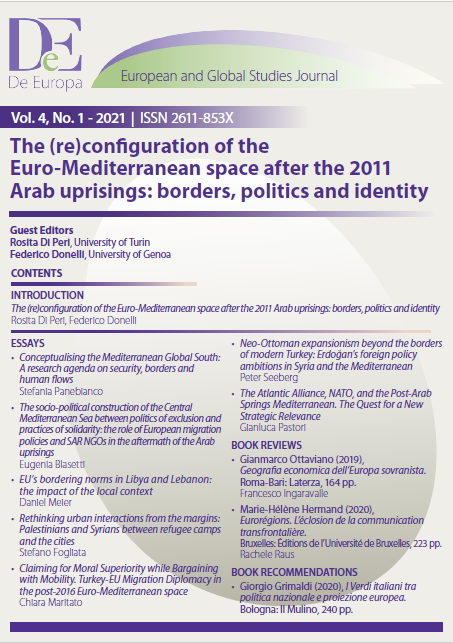The Atlantic Alliance, NATO, and the Post-Arab Springs Mediterranean: The Quest for a New Strategic Relevance
DOI:
https://doi.org/10.13135/2611-853X/5615Abstract
The geographic dimension lies at the very heart of the Atlantic Alliance: this is why the extension of the Alliance’s scope has often been a divisive issue. Between the late 1980s and the early 1990s, when the Soviet Union dissolved, there were efforts to develop a new Mediterranean strategy, more attentive to the emerging threats. The Mediterranean Dialogue (1994) and the Istanbul Cooperation Initiative (2004) were the two most important tools developed to this end. None of these programs was successful. The emphasis that NATO placed on technical cooperation triggered criticism, while the partners’ aloofness cooled down NATO’s initial expectations. The weight of the Eastern European members and their fear of the new Russian activism favoured a return to the old “deterrence and defence” posture, which – according to the Mediterranean members – underestimates their needs and makes NATO more vulnerable. The Arab Springs and their results emphasised the weakness of NATO position and the limits of a purely military approach to regional security. The efforts started in 2016 to rebalance the Alliance have led to few results. Lacking an overall vision on the transformations affecting the MENA region, the Alliance is currently losing relevance vis-à-vis other subjects, returning to a posture that sees the Mediterranean as an appendix of the traditional central theatre.
Keywords: Atlantic Alliance; NATO; Arab Springs; Mediterranean Policy; European Security and Defence




 The journal has been approved for inclusion in DOAJ. The DOAJ listing of the journal is available at
The journal has been approved for inclusion in DOAJ. The DOAJ listing of the journal is available at 

